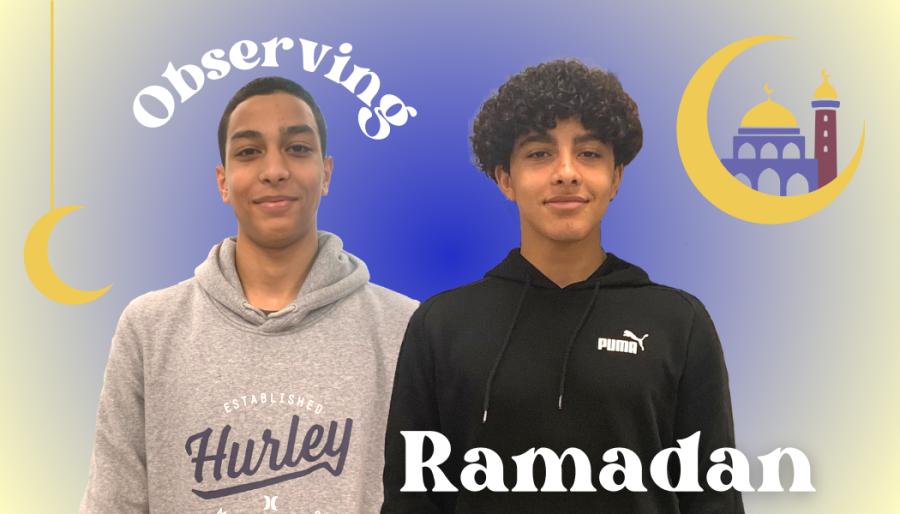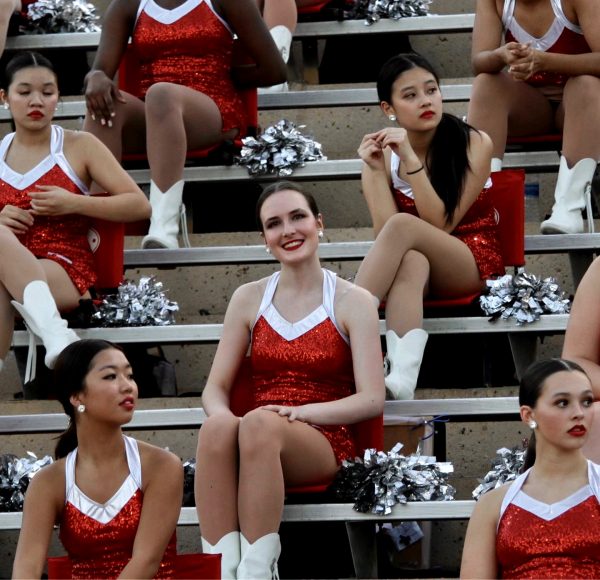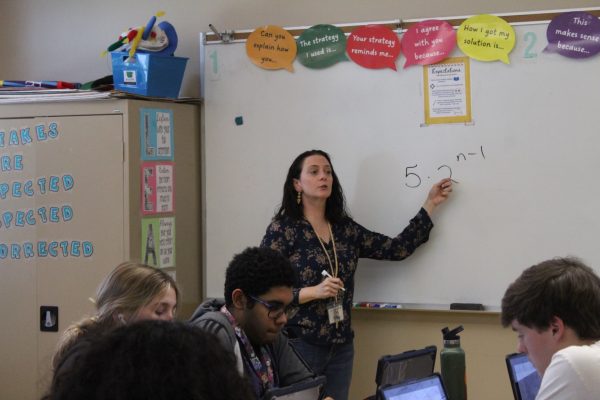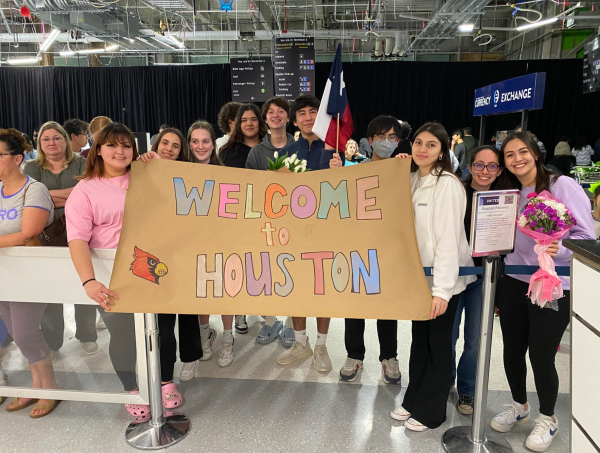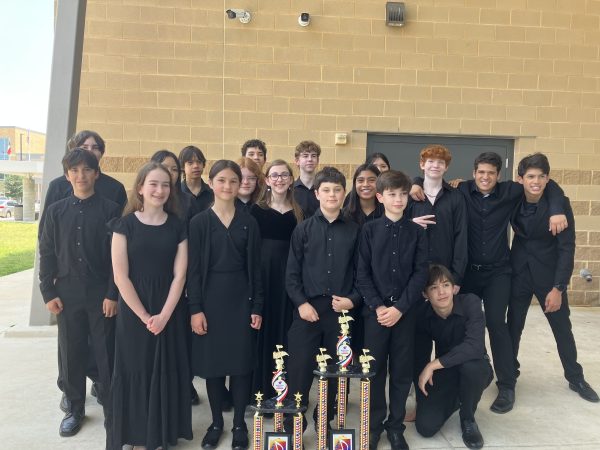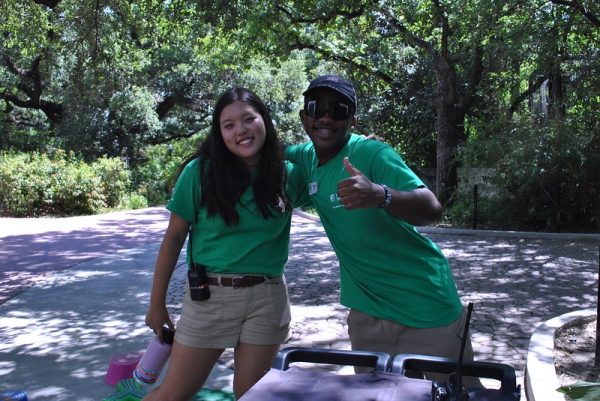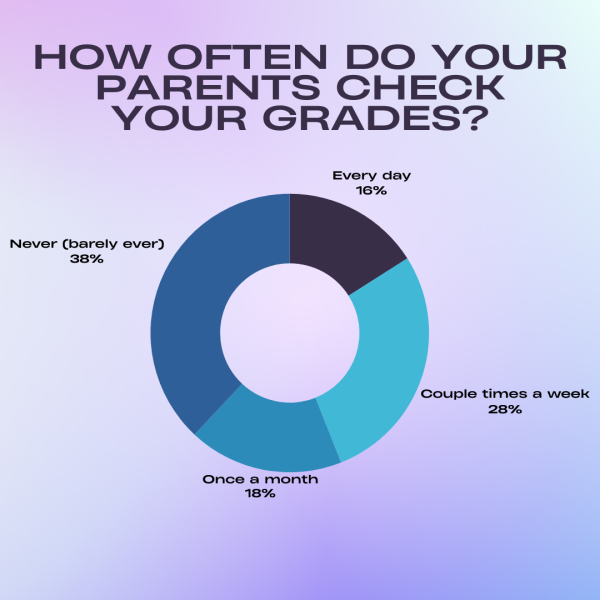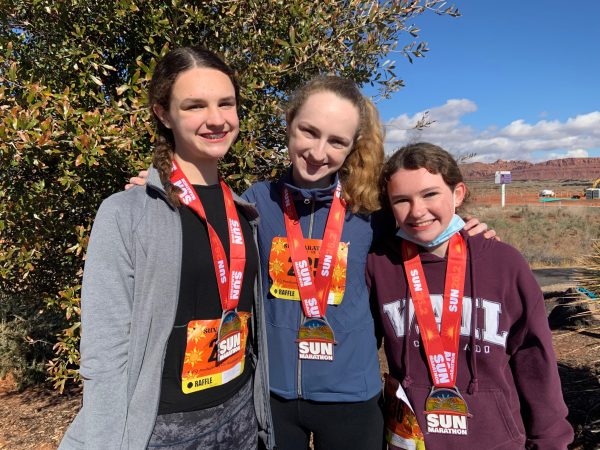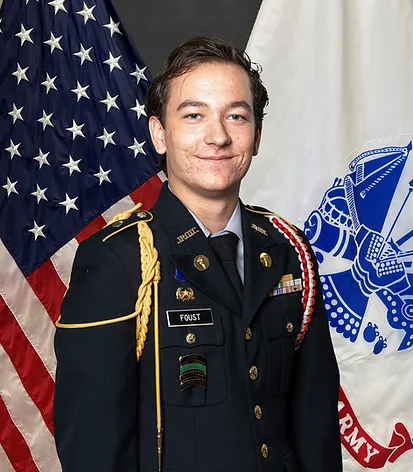How students at Bellaire observe Ramadan
Sophomores Yousef Salem (left) and Omar Eloliby (right) observe Ramadan by fasting from dawn to dusk. For Eloliby, Ramadan allows him to connect to his spiritual side.
The clock strikes 4 a.m.
Bzzt.
Bzzt.
Bzzt.
Still groggy and in a daze, sophomore Omar Eloliby turns off his alarm.
It’s still dark outside, but he gets up to drink water and eat breakfast. This is his last chance to eat and drink until sunset.
Eloliby represents one among the over 120,000 Muslims in Houston who observe the Islamic holiday Ramadan, which requires all Muslims to fast from dusk to dawn. However, the Islamic holy book, The Qur’an, exempts nursing and pregnant women, menstruating women, children, the old and the sickly from fasting.
While Eloliby usually wakes up at 6:30 a.m., he now gets up at 4 a.m. during Ramadan to eat before fasting starts at around 6 a.m.
Muslims have to stop eating before Fajr prayer sounds and as each day passes, the minute decreases due to the lunar cycle. This means Muslims have to wake up earlier each day to eat.
The ninth month of the Islamic lunar calendar, Ramadan is deemed the holiest month because it’s when God revealed the The Qur’an, to Prophet Muhammad (PBUH).
For Eloliby, Ramadan is a chance for him to get closer to Allah, translating to God in Arabic. Between class periods and lunch, he reads the Qur’an.
“It’s the best time to connect with the spiritual side of myself,” Eloliby said. “It makes me really happy to worship Allah. When you’re in the middle of a prayer, it feels so nice because you feel connected.”
After sunset, Muslims break their fast with a meal called iftar, typically with dates, which is generally eaten with extended family. While Eloliby does not eat with his extended family every night, his mom cooks more elaborate meals during Ramadan, which takes around two hours to prepare.
“At home we usually eat easier meals,” Eloliby said. “However, during Ramadan, since we’ve been fasting all day, we will eat special meals that take longer to prepare. For example, my mom makes duck and potatoes.”
According to Eloliby, fasting during lunch at school can be a challenge.
“Recently there was a Crawfish Boil at school that I would’ve loved to buy, but I couldn’t,” Eloliby said.
Being unable to eat during the daytime, has led Eloliby to spend his lunch in Arabic teacher Samar Halabi’s classroom with members of the Muslim Student Association who also fast.
While Eloliby finds the isolation of fasting difficult at times, sophomore Yousef Salem does not.
“It doesn’t bother me at all if somebody is eating,” Salem said. “I’m fasting. People think fasting is hard, but it actually is not too hard because your body is not working [to digest food], so it’s not going to use up as much energy. It helps you by teaching you how to control yourself from things you want to do like eating and drinking.”
Growing up in Egypt, a Muslim majority country, Salem was forced to adjust to the lack of knowledge of Islam that Americans attain.
“I wish teachers knew that during Ramadan we also do not drink,” Salem said. “Some students will make fun of other Muslims in class by drinking in front of them. While it doesn’t bother me anymore, in the past, it did a little because in Egypt we all used to fast. We were all the same, but here there are different beliefs, different people and different visions.”
Fasting isn’t always about abstaining from eating and drinking, it’s about abstaining from secular tendencies, so Muslims also try to break nasty habits to purify themselves and strengthen their religion, or “deen”. A habit Salem quit this Ramadan is swearing.
“I used to curse a lot, but now I am trying to stop [that],” Salem said. “We try to stop our bad habits to become new versions of ourselves during this month.”
Overall, Salem sees Ramadan as a chance to practice virtuous habits and improve himself.
“My favorite thing about Ramadan is getting closer to God and becoming a better person,” Salem said. “In Islam you live by collecting deeds. The goal is to have as many good deeds as possible because we believe that heaven has levels, so the more good deeds you have the higher the level you will [reach].”

